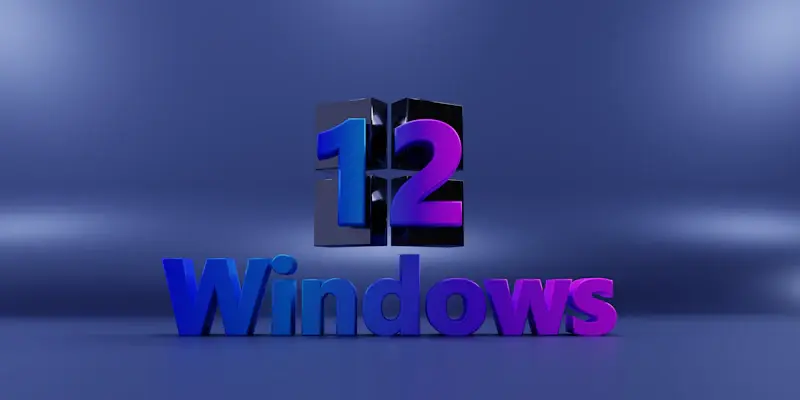Microsoft’s next major operating system, Windows 12, is on the horizon and has already sparked discussions about what enhancements it must offer to attract users from competing platforms, especially Linux. While the official release is still years away, the critical areas that need attention are already apparent. Linux enthusiasts, known for their preference for privacy, customization, and streamlined operations, have voiced clear demands. Addressing these issues will not only retain current users but also attract new ones from the Linux community.
Privacy Prioritization
Eliminating Data Collection
Privacy stands at the top of the list for many Linux users, and it is one of the areas where Microsoft must make significant improvements with Windows 12. In contrast, Windows 11 has been criticized for its telemetry and enforced Microsoft account logins, which many view as invasive. Therefore, providing clear and straightforward options to opt out of all forms of data collection needs to be a priority for Windows 12. Microsoft must ensure that opting out is not only possible but also easy, avoiding the use of technical loopholes or intentional obfuscation that leaves users feeling frustrated and mistrustful.
Transparent Privacy Policies
Beyond technical opt-outs, Microsoft should focus on enhancing transparency about its privacy policies and data collection practices. By providing easily accessible and comprehensible information on what data is collected and how it is used, users can make informed decisions. For Windows 12 to appeal to the privacy-conscious users that favor Linux, Microsoft must take substantial steps to ensure that users’ data is respected and protected at all times.
Enhanced Customization
Unrestricting the Interface
One of the most frequently voiced frustrations about Windows 11 is its lack of customization. Linux users appreciate the extensive control they have over their desktop environments, which allows them to tailor their systems to their preferences without constraints. For Windows 12 to win over these users, Microsoft needs to unlock these customizable features. This freedom will make the operating system feel more personal and user-friendly.
User Preferences and Themes
Moreover, introducing more in-built themes and user preferences that can be easily toggled would significantly enhance the user experience. Allowing users to personalize their interface with just a few clicks will make Windows 12 more appealing to those who value a unique and customized desktop experience. By addressing these customization issues, Microsoft can bridge the gap and make Windows more attractive to those who currently prefer the flexibility that Linux offers.
Unified Package Management
Solution for Disparate Applications
Another area where Linux excels is in its package management systems, such as APT and Pacman, which simplify software installations and updates. Windows, however, continues to rely heavily on EXE files and the Microsoft Store, leading to a fragmented experience. Although Winget represents a step towards a more unified package management system, it still falls short of Linux alternatives in terms of usability and efficiency. For Windows 12 to modernize this aspect significantly, Microsoft needs to develop a robust, unified package management solution that streamlines the software installation and updating process across all applications. This would reduce the clutter and complexity associated with managing multiple sources for software and improve the overall user experience.
Enhancing Software Consistency
A well-designed package manager in Windows 12 should offer consistency across software installations, updates, and removals. Streamlining these processes would reflect a significant commitment to enhancing usability and efficiency, making Windows a more viable option for users who value simplicity and consistency in their software management practices.
Reducing OS Bloat
Lightweight System Design
Windows 11 has faced criticism for its bloat—a plethora of pre-installed applications and unnecessary background processes that consume valuable system resources. For Windows 12, achieving a lighter system design should be a key objective. By offering a true minimal install option free from unwanted third-party apps and unnecessary background activities, Microsoft can improve performance and user satisfaction. This minimal option would cater to power users and those who prefer a lean operating system, similar to what they experience with their favored Linux distributions.
Impact on Performance and Usability
A lighter operating system means faster boot times, quicker application launches, and generally smoother operation. Users would benefit from more available system resources, enhancing the overall efficiency of their workflow. By focusing on core functionalities and eliminating unnecessary components, Microsoft can deliver a cleaner, more responsive operating system.
Improving Windows Subsystem for Linux (WSL)
Enhancing Integration and Performance
The Windows Subsystem for Linux (WSL) has been a step in the right direction for integrating Linux capabilities within a Windows environment. For Windows 12, further development of WSL is essential. Enhancing performance, providing seamless graphical user interface (GUI) support, and deeper integration will make using WSL akin to running a native Linux machine. Properly addressing these areas will make Windows 12 a more attractive option for developers and power users who rely on Linux tools and workflows.
Leveraging Native Linux Capabilities
Microsoft’s upcoming major operating system, Windows 12, is already creating a buzz, sparking conversations about the features it needs to bring to the table to win over users from rival platforms, particularly Linux. Linux users, who are passionate about privacy, customization, and efficient performance, have made their expectations known. By addressing these key issues, Microsoft has the opportunity not only to retain their current user base but also to attract a new wave of users from the Linux community. Privacy enhancements, more robust customization options, and streamlined performance could make Windows 12 a more appealing choice for those accustomed to Linux’s advantages. Meeting these demands could transform Windows 12 into a powerful competitor, enticing users who value control and efficiency in their computing experience.

